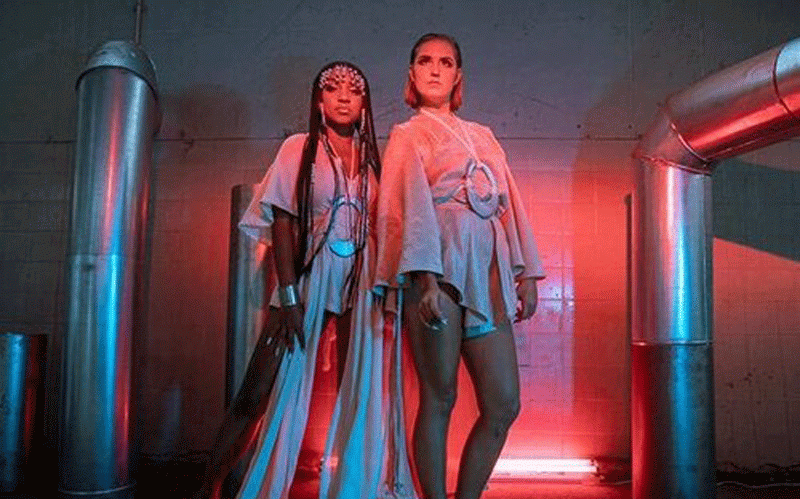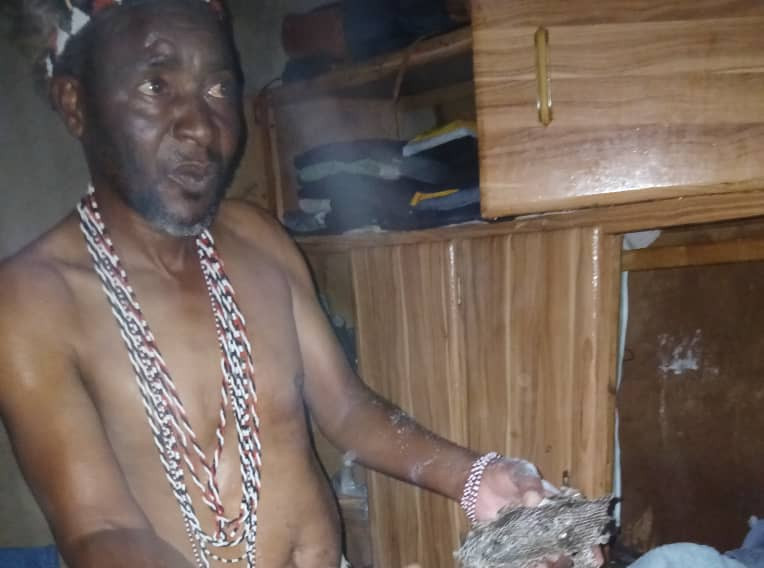
THIS year, the month of March marks National Women’s Month, a juncture in the advancement of women’s rights, gender equality and inclusive society. It should enable us to also look at advances in women’s rights and gender equality in the music industry.
From the earliest days of recorded music to the present age of virtual reality and digital sounds, women have made untold contributions to the music world in which we increasingly live. Going back to the days of Aretha Franklyn, Diana Ross, Tina Turner, Miriam Makeba, Brenda Fassie and all the big female names we know today, the accomplishments of women in music have been against all odds, in a field that has historically neither welcomed nor appreciated them.
Today, a persistent gender gap to music access keeps women from unlocking music’s full potential. I don’t mean to be harsh on women, but this is one reason why some of them are forced to compromise on a lot of things as a way of having access to the music world. Their under-representation in music circles and music careers remains a major barrier to their participation in modern music trends. And the pervasive threat of online gender-based violence — coupled with a lack of legal recourse — too often forces them out of the spaces they do occupy.
This March is Women’s History month. This is also the month in which we celebrate women musicians in Zimbabwe. It is a pity that some of the leading women in this field have left us. As recently as only four months ago, Stella Chiweshe died. Before that it was Dorothy Masuka, Beatar Mangethe, Chiwoniso Maraire , Deborah Fraser and Susan Mapfumo.
We need to thank these women for their inspirational roles in the difficult male-dominated field of music. Even today, in 2023, there has been a very strong misconception about women in the music business in Zimbabwe. The main reason is the traditional role played by women in African societies where being in a band is regarded as a male thing. Women musicians in Africa are often perceived as either people who are lacking in moral values, loose women or undisciplined individuals who have rebelled against society. However, this is not true. There are more such women in society than there are female musicians. It’s just that most men prefer to see women playing a secondary role to them. Music business therefore becomes taxing both socially and emotionally for many women. Despite that, we still have a handful of Zimbabwean female musicians in and outside Zimbabwe. To give an example, names which come to mind include Olivia Charamba, Janet Manyowa, Busi Ncube, Edith we Utonga, Novuyo Dube, Tahle we Dzinza, Gemma Griffiths, Diana Samkange, Ammara Brown, Fungisayi Zvakavapano-Mashavave, Shingisai Suluma, Tamy Moyo, Selmor Mtukudzi, Hope Masike, Tariro ne Gitare, Fatima Katiji, Claire Nyakujara, Rutendo Mugandani, Anita Jackson, Tendai Mavengeni, Feli Nandi, Tina Masawi, Vuyo Brown, Thandi Bhala, Mimie Tarukwana, Pauline Kamusewu, Prudence Katomeni-Mbofana, Plaxedes We Nyika, Sku, Sibo, Lipsy, Patience Musa, Kudzi Sevenzo, Sandra Ndebele, Thanda Far Richardson, Pa Chihera, Cindy Munyavi, Mercy Mutsvene, Rute Mbangwa, Dudu Manhenga-Mparutsa, Ivy Kombo, Betty Makaya, Lady Squander, Joice Semente, Tererai Mugwadi, Da-Ruler, Vimbayi Zimuto, Primrose Sithole, Eve Kawadza, Bounty Lisa, Sha Sha, and Rozalla Miller to mention only a few courageous ones. There are many more who have not appeared in the limelight. Some of them are used as backing singers on the music scene dominated by their male counterparts.
A lot of women are found in the gospel arena because it is a safe platform from which to land oneself onto the music scene. Because even men fear God, it is difficult for male chauvinists to stop their wives or daughters from singing about God in church. This is why it is easier for a woman who wants to venture into singing to start off with being a member of her church choir.
As the late Stella Chiweshe, one of Zimbabwe’s leading mbira players put it: “It does not have to be like that. A woman can do most of the jobs that a man can do. I counted the number of fingers on a man’s hand and saw five in one hand. I then counted the fingers on my hand, and they also came to five. So, I said to myself, what the hell, if a man can play mbira, I can too.”
What most women need is the determination to break through the old ideas that some work is for women and other for men. That is how our society can grow. After all there is no difference in the brain cells between men and women. Scientists have yet to prove this if that is the case. Today, we now have female scientists, pilots, doctors and automobile engineers, jobs which were dominated by men before.
- ‘Cont doesn’t need Zanu PF validation’
- Storm brews over health funds
- ‘Cont doesn’t need Zanu PF validation’
- The audience effect!
Keep Reading
I am not sure how society got it wrong. It is the woman who gives birth to every man in this world . From a baby to adulthood, the woman is in charge of that man. She tells him what to do and how to behave in society. She grooms him and introduces him to this world. So how does this man end up dominating the woman who nurtured him? I don’t understand.
This phenomenon is not isolated to Zimbabwean female musicians only, but it also applies to women all over the world. Even Beyonce, one of the world’s richest female musicians suffers from it. I will try and explain:
The division of labour between men and women is not in itself an unequal or oppressive arrangement and only seems inevitable due to the differences in biology. Men are often physically stronger than women and should only excel in the roles which require their physical strength. However, we should question at what point and why this division became a relationship of dominance – and oppression. Why brave women, with their superior bodies which enable them to bear and to feed babies, become the underdog? It is important that we should define carefully what it is that women are “naturally” or biologically built for giving birth to and suckling babies.
We must reject other attributes said to be naturally feminine, like the ability to care for babies, change their nappies, nurse them when they are sick, oversee their development and education etc. These things, men are just as capable of performing. However, many women are physically unwell and unable to labour during pregnancy, lactation and during times of other menstrual problems. This vulnerability must have played a part in their subjection. This, to me sounds like some of the reasons why most women become the underdogs.
Despite the historical gains that women's rights activists fought for, we still have a lot of gender discrimination in our societies. Gender discrimination, a form of gender oppression is “attitudes, conditions or behaviours that promote stereotyping of social roles based on gender.” In this Women’s History Month, it is really up to progressive women to find ways of dealing with this patriarchal society in order to stop the discrimination of women in our societies.
You can find gender imbalance throughout the whole eco-system of the music industry as we all may be inadvertently being steered towards consuming more music created by male artistes. Sexual harassment and objectification are also major issues that women face.
Gender inequality is obviously rife across the industry. There are many issues female musicians face. Issues such as ageism also come into play.
The music industry wants female artistes to be young – partly a symptom of the industry’s youth obsession, but also so that women become successful before they are presumed to decide to take on the role of motherhood.
These issues, challenges and experiences are not “women’s problems” to be solved just by women in the music industry. Men also need to put their weight behind the issues. For instance, in an event that involves several artistes, male artistes can stipulate that they will only play events with balanced bills. If one was to look at the top ten charts in Zimbabwe, they would also notice that these charts are dominated by male singers. There is need for balance. The society also needs to look at female artistes who have come up with hits and vote for them to enter the charts.
When I tested the algorithm on recent top ten charts from a specified radio station, I found, on average, the first recommended track was by a man, along with the next seven. Users had to wait until song eight to hear one by a woman. These playlists overtly contribute to the continued “othering” and marginalising of non-male artistes. It may be true that there are more men recording music than women, but who says that it is the men’s music which should sound superior to that recorded by women? It’s not a matter of quantity but quality.
It’s clear that there’s still a long way to go for women in the music industry, but that’s all the more reason to celebrate the pioneers of Zimbabwean women in music such as Dorothy Masuka, Susan Mapfumo, Stella Chiweshe, Chiwoniso Maraire and all the change-makers including those women who have defied expectations, sexism and ageism throughout their music careers.
- Feedback: frezindi@gmail.com










